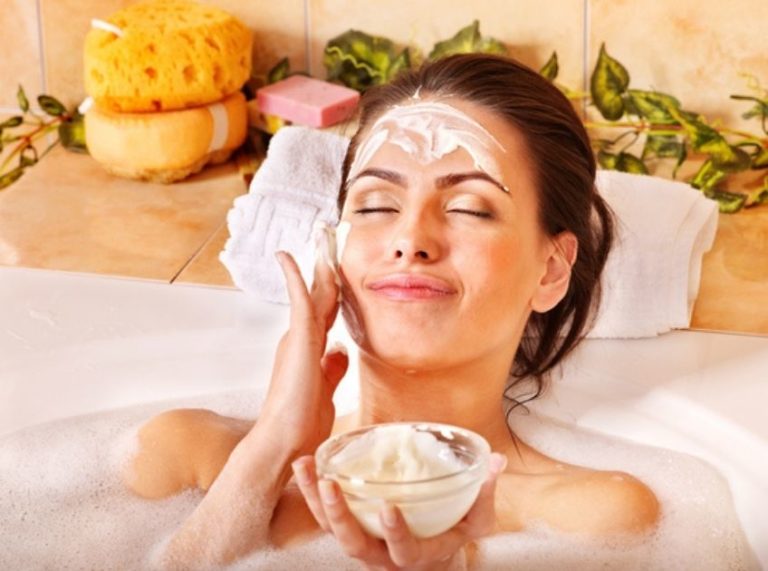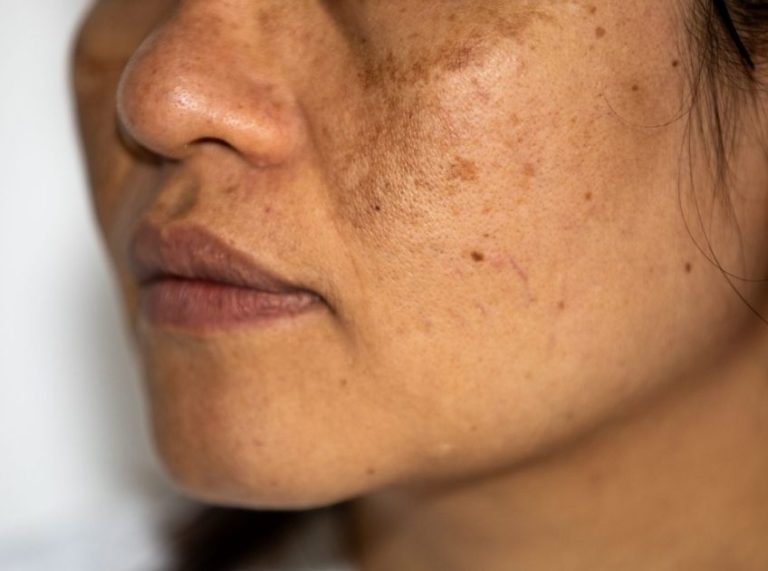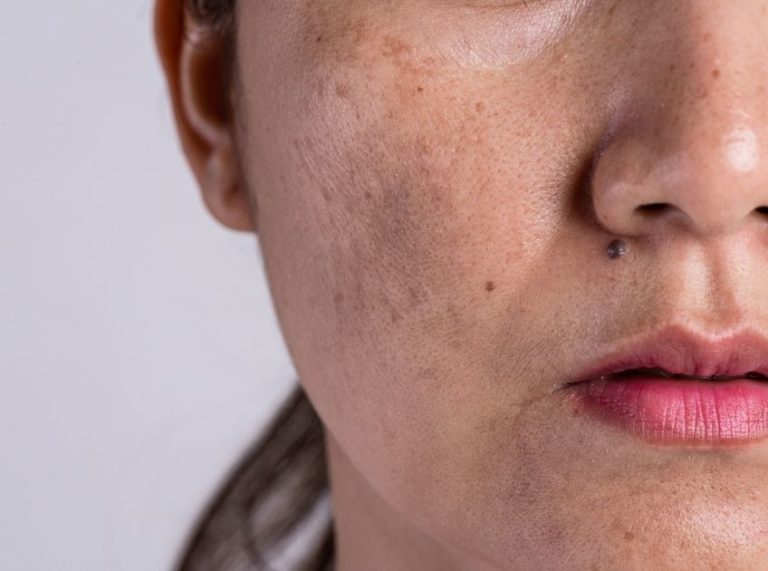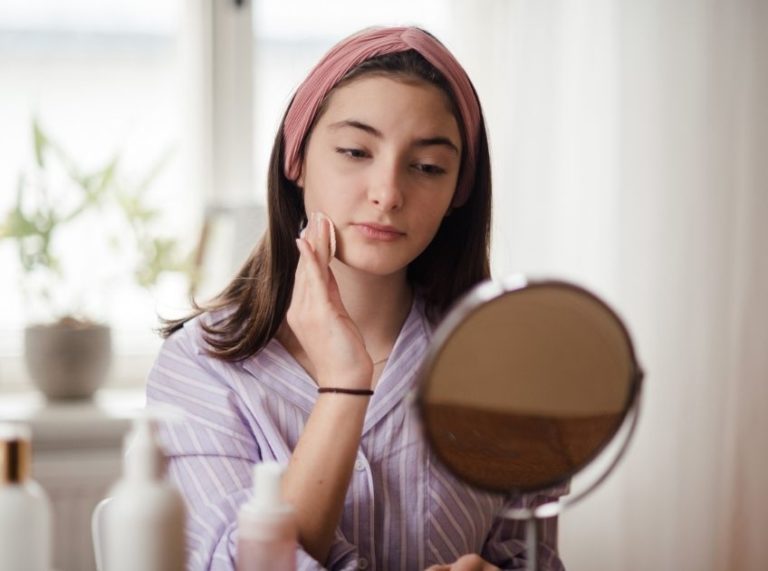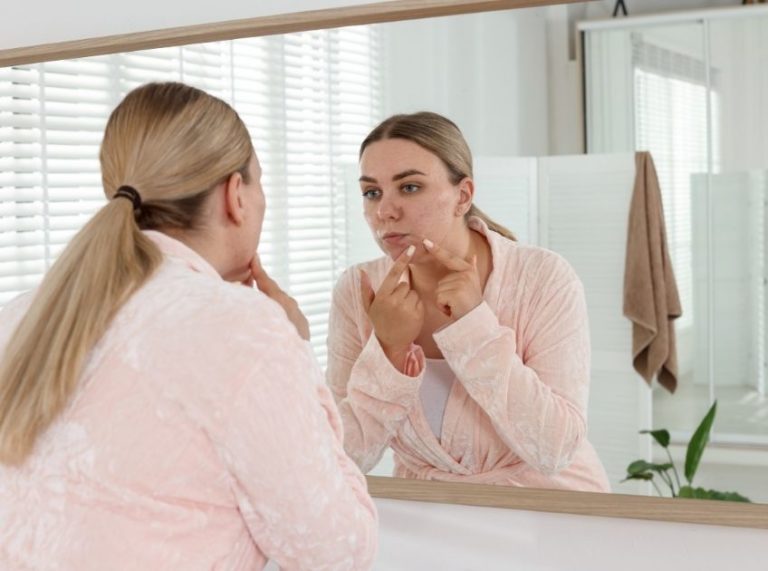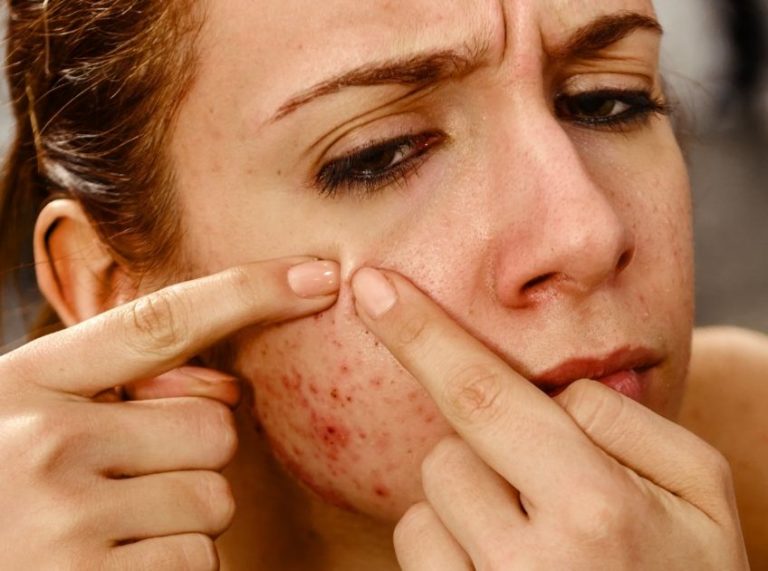
Important: This article is for informational purposes only. Please read our full disclaimer for more details.
Showering is a daily ritual for many of us—a moment of relaxation or rejuvenation. But if you’ve ever stepped out of the shower feeling like your skin is tight and dry, you may be asking: does showering cause dry skin? The short answer is yes. Several factors can contribute to skin dehydration after a shower. Let’s dive into the science behind it, explore how showering habits can affect your skin, and share some tips to keep your skin soft and hydrated.
The Science Behind Dry Skin After Showering
Showering, while essential for personal hygiene, can inadvertently disrupt your skin’s natural moisture balance. Your skin is protected by a lipid barrier made up of essential fatty acids and ceramides. This barrier helps lock in moisture and keeps irritants out. When disrupted, however, it leads to dryness, irritation, and discomfort. Here’s a closer look at how common showering habits can damage your skin’s barrier:
1. Hot Water Strips Natural Oils
Hot water might feel soothing, but it can damage your skin’s protective layer. When the water is too hot, it strips away the natural oils that your skin needs to stay hydrated. This leads to increased moisture loss, leaving the skin feeling dry and tight. In fact, hot water can even cause inflammation, further weakening the skin barrier.
Skin Tip: The ideal water temperature for showering should be lukewarm—comfortable but not too hot. This helps preserve your skin’s natural oils while still offering a refreshing experience.
2. Long Showers
While we all love a long, relaxing shower, extended exposure to water can lead to moisture loss, especially when combined with hot water. Prolonged water contact disrupts the skin’s barrier function, and your skin may become dehydrated more quickly.
Skin Tip: Aim for a shower duration of 5 to 10 minutes to minimize moisture loss and protect your skin’s hydration.
3. Harsh Cleansers
Many body washes, soaps, and cleansers contain harsh chemicals like sulfates and alcohol, which can strip away the skin’s natural moisture. These ingredients can leave your skin feeling dry, irritated, and prone to flakiness.
Skin Tip: Choose gentle, moisturizing body washes and soaps, free from sulfates and alcohol. Look for formulas that contain hydrating ingredients like glycerin, shea butter, and natural oils.
4. Environmental Factors
Dry indoor air—particularly during the colder months—can also contribute to skin dryness. Central heating systems, while keeping us warm, tend to lower humidity levels indoors. This lack of moisture in the air can pull moisture out of your skin, exacerbating dryness.
Skin Tip: Consider using a humidifier in your home, especially in winter, to maintain moisture levels in the air and prevent skin dehydration.
Signs You’re Dealing with Dry Skin After Showering
If you’ve noticed any of the following symptoms after showering, your skin may be reacting to your shower routine:
- Tightness: A sensation of tightness across your skin, often accompanied by discomfort.
- Flakiness: Visible dry patches or peeling skin, especially on the arms, legs, or torso.
- Itchiness: An itchy, uncomfortable feeling that intensifies after a shower.
- Redness: Inflammation or irritation, particularly on sensitive areas like the face or underarms.
If any of these symptoms sound familiar, it’s time to reassess your showering habits.
How to Prevent Dry Skin After Showering
The good news is that there are simple ways to prevent dry skin while still enjoying your showers. Here are some practical tips for keeping your skin hydrated and healthy:
1. Opt for Lukewarm Water
Hot showers are one of the main causes of dry skin. Instead, choose lukewarm water that’s comfortable but not too hot. Lukewarm water won’t strip away your skin’s natural oils, helping to maintain your skin’s moisture balance.
2. Keep Showers Short
Limit your shower time to 5 to 10 minutes. This minimizes exposure to water and prevents your skin from losing too much moisture. The longer you shower, the more moisture your skin loses, leading to dryness.
3. Use Gentle, Hydrating Cleansers
Choose body washes and soaps designed for dry skin. Look for products free from sulfates, alcohol, and artificial fragrances. Instead, opt for those with moisturizing ingredients like shea butter, jojoba oil, or aloe vera, which help replenish and soothe dry skin.
Product Recommendations
1. CeraVe Hydrating Body Wash

(contains ceramides and hyaluronic acid to hydrate and restore the skin barrier).
This dermatologist-recommended body wash is packed with essential ceramides and hyaluronic acid, which help restore the skin’s natural barrier and retain moisture. It’s non-foaming, making it ideal for sensitive skin. Its gentle formula cleanses without stripping, leaving skin feeling soft, smooth, and hydrated.
2. Aveeno Skin Relief Body Wash

(formulated with colloidal oatmeal to soothe and protect dry skin).
Formulated with soothing colloidal oatmeal, this body wash helps relieve dry, itchy skin caused by environmental factors like harsh water. Its mild, soap-free formula is enriched with natural ingredients that gently cleanse while maintaining the skin’s moisture balance, making it perfect for daily use on sensitive skin.
4. Moisturize Immediately After Showering
The key to locking in moisture is applying a rich moisturizer as soon as you step out of the shower. When your skin is still damp, it absorbs moisture better, helping to prevent dehydration. Look for moisturizers that contain humectants (like hyaluronic acid) and occlusive agents (like shea butter or coconut oil) to keep skin hydrated.
Product Recommendations
1. Neutrogena Hydro Boost Water Gel

(contains hyaluronic acid for intense hydration).
Known for its lightweight texture, this moisturizer is infused with hyaluronic acid, which provides intense hydration and locks moisture into the skin. Its non-greasy formula is absorbed quickly, leaving skin feeling fresh and replenished without any sticky residue. Ideal for all skin types, especially those prone to dryness.
2. Eucerin Advanced Repair Lotion

(rich in ceramides and glycerin to hydrate and repair dry skin).
This rich, fragrance-free moisturizer contains a powerful blend of ceramides and glycerin to repair and hydrate very dry skin. It provides long-lasting moisture and helps restore the skin’s natural barrier, making it an excellent choice for those battling dryness due to environmental stressors like cold air or heating systems.
5. Pat Your Skin Dry, Don’t Rub
After you step out of the shower, gently pat your skin with a towel instead of rubbing it. Rubbing can irritate your skin and strip away moisture. Patting leaves a layer of moisture on the skin that helps maintain hydration.
6. Use a Humidifier
If you live in a dry climate or use central heating, a humidifier can add moisture to the air, preventing your skin from drying out. This is particularly helpful during the winter months when humidity levels are lower.
Conclusion
Showering is an essential part of our daily routine, but it’s important to be mindful of how it can impact our skin. By adjusting water temperature, limiting shower time, choosing gentle cleansers, and moisturizing right after, you can prevent dryness and keep your skin soft and hydrated. If your skin continues to feel dry despite these changes, it may be time to consult a dermatologist for personalized advice.
With a few simple adjustments to your routine, you can enjoy the benefits of a refreshing shower without sacrificing your skin’s health.
You Might Also Like:
- Skin Care Routine for Dry Skin – The Ultimate Skincare Guide for Hydration and Care
- Home Remedies for Dry Skin on Face: 5 Easy Ways to Treat at Home
- Dry Cracked Hands – Remedies, Causes, and Prevention Tips
- 10 Best Exfoliant For Dry Skin
- Why Is My Skin So Dry Even When I Moisturize
- 10 Best Vitamin C Moisturizers for Dry Skin: Unlock Radiant, Hydrated Skin
- The Ultimate Guide to Vitamin C Serum for Dry Skin: 10 Top Picks
- 7 Best Cocoa Butter Body Lotions for Black Skin
- How to Apply Body Lotion After Shower for Maximum Hydration
- Does Shea Butter Moisturize Skin? The Science Behind It
- How to Smell Good and Look Clean All Day – A Complete Guide To Hygiene Routine

